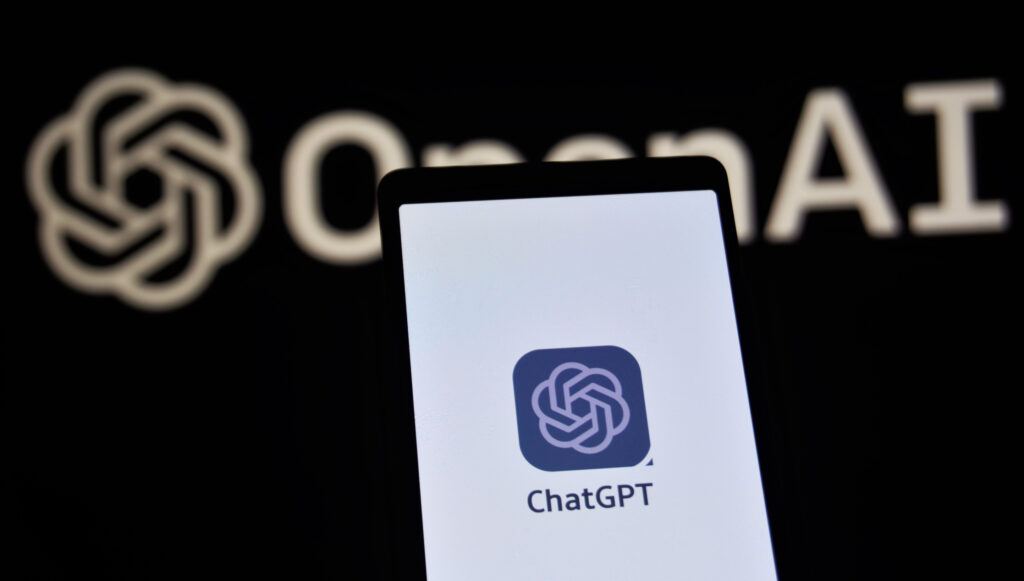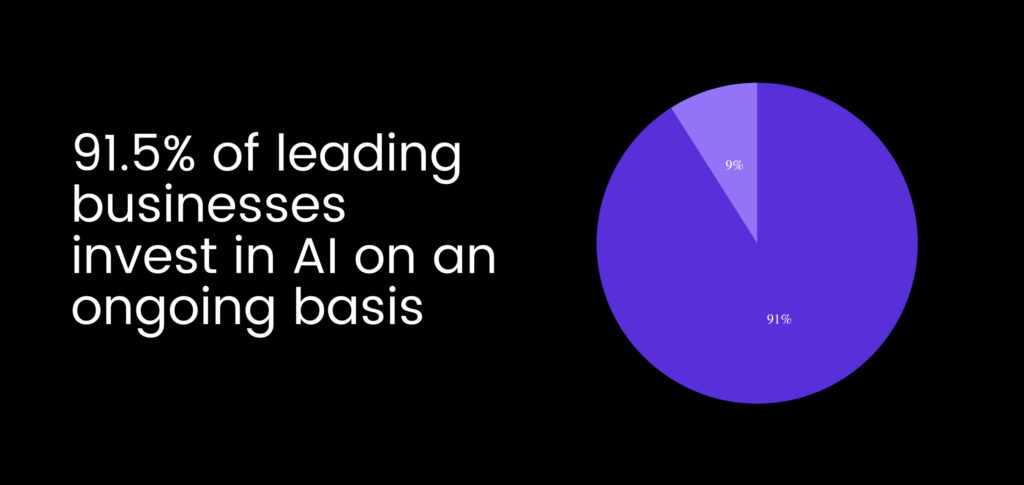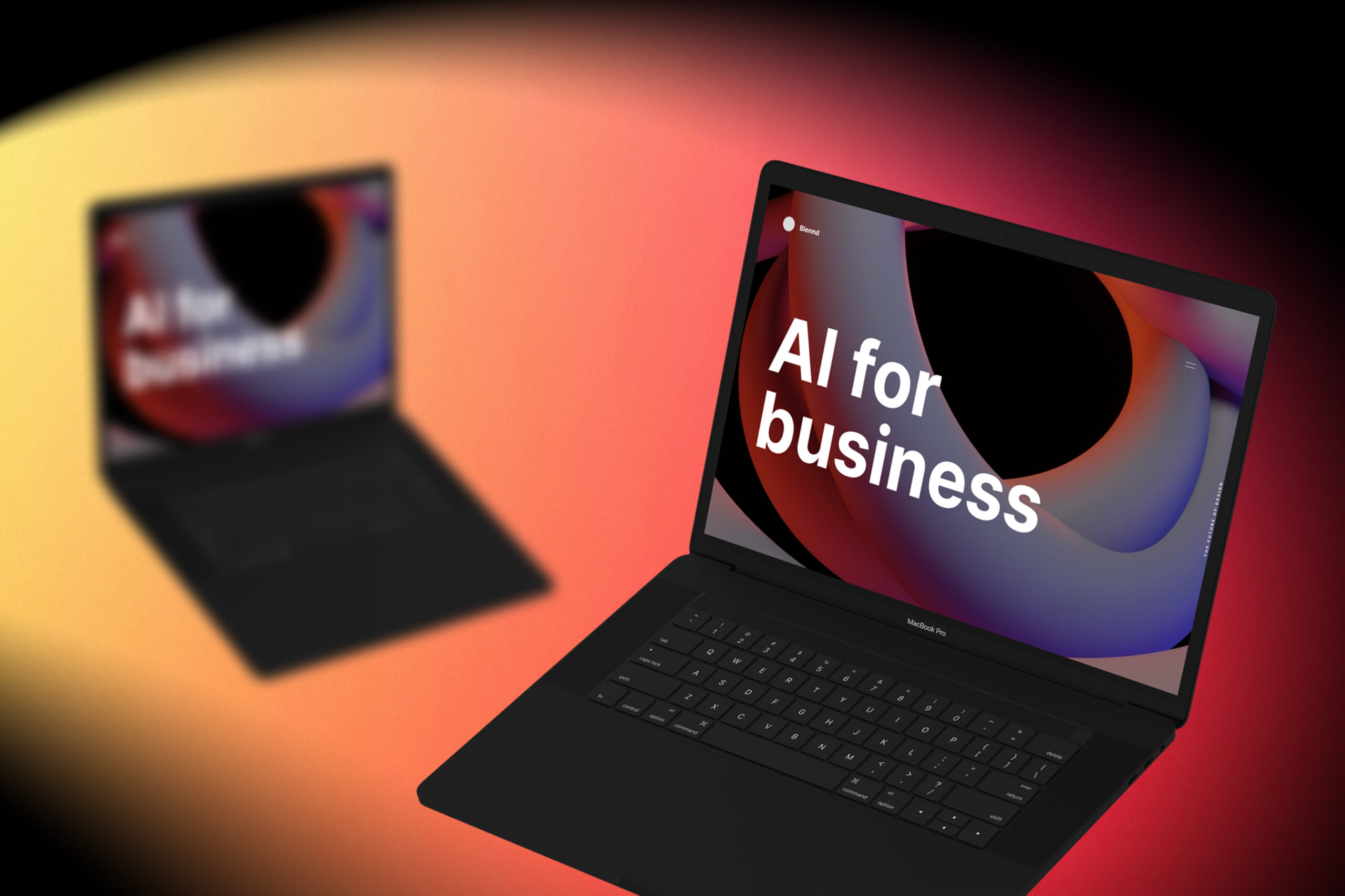Artificial Intelligence (AI) has significantly disrupted business operations and strategies across industries, presenting immense opportunities for innovation and growth. The integration of AI into digital marketing and digital product design represents a critical strategic pivot for businesses. If you're a CEO or CMO at a mid-market company, it's time to leverage AI for business to create a competitive advantage.
AI for Business: Understanding AI's Impact on Businesses
Artificial Intelligence (AI), with its capacity to simulate human intelligence and automate complex tasks, has become a transformative force across diverse industries. It presents an array of opportunities for innovation, efficiency improvement, cost reduction, and ultimately, growth. Specifically, the impact of AI on digital marketing and digital product design is transforming the way businesses interact with customers and create value.
According to McKinsey's research,
AI adoption in businesses saw a 25% increase in 2020, and 50% of organizations have adopted AI in at least one business function1.
McKinsey & Company. (2021). "The State of AI in 2020." McKinsey & Company. Link
The rise in AI adoption indicates a paradigm shift as more companies recognize the transformative potential of AI.
AI technologies such as machine learning, natural language processing, and robotics enable businesses to innovate and expand. Companies can use AI to develop new products and services, or enhance existing ones. For example, in the financial industry, robo-advisors like Betterment use AI to provide personalized investment advice, democratizing access to financial planning.
AI also opens avenues for business growth by enabling companies to enter new markets or better serve existing ones. AI-powered solutions can be customized for various market segments, thus reaching a broader customer base. AI also helps businesses scale their operations more efficiently.

AI in Digital Marketing
The integration of AI in digital marketing and digital product design is a game-changer. In digital marketing, AI can analyze customer behavior, personalize marketing messages, and optimize marketing campaigns for better ROI. For instance, tools like Marketo and HubSpot use AI to streamline marketing automation and improve customer engagement. The use of AI for predictive analytics, customer segmentation, personalized marketing, and chatbots has enhanced the efficiency and effectiveness of marketing efforts.
Let's Delve Deeper Into How AI is Reshaping the Digital Marketing Landscape
- Predictive Analytics: AI-powered predictive analytics utilize machine learning algorithms to analyze past and present data and predict future customer behaviors and trends. For instance, Amazon uses predictive analytics to recommend products to customers based on their browsing and purchasing history, significantly boosting their sales.
- Customer Segmentation: AI can analyze massive volumes of data to segment customers more accurately based on various factors like demographics, buying behavior, preferences, and more. This enables businesses to target their marketing efforts more precisely, thus enhancing efficiency. For instance, Starbucks uses AI to analyze customer data collected from its reward program to deliver personalized marketing messages.
- Personalized Marketing: With AI, businesses can create a highly personalized customer experience. AI algorithms can process data from various sources, like browsing behavior, past purchases, and social media interactions, to deliver personalized content, recommendations, and offers. Spotify, for example, uses AI to analyze a user's listening habits and create personalized playlists.
- Chatbots: AI-powered chatbots have revolutionized customer service in digital marketing. They can handle multiple customer interactions simultaneously, providing instant responses and support. They can also be programmed to provide product recommendations and upsell, enhancing marketing efforts. Businesses like Sephora and H&M use chatbots to provide personalized shopping recommendations.
- Actionable Insights: AI tools can analyze complex and large sets of data to provide insights that can help businesses improve their marketing strategies. These insights can include identifying the best time to post on social media, the type of content that gets the most engagement, predicting customer churn, and more. Google Analytics, for example, uses AI to provide businesses with insights into their website traffic and user behavior.
These are just a few examples of how AI is being utilized in digital marketing. The potential applications are vast and continue to grow as technology advances. AI can also process vast amounts of data to provide actionable insights, enabling you to refine your marketing strategy for better ROI.
Netflix saved $1 billion in 2017 due to its AI algorithm, which personalizes recommendations and reduces customer churn2.
Smith, N. (2017). "How Netflix Is Using Your Data." World Economic Forum. Link
AI in Digital Product & Web Design
In the realm of digital product and web design, AI's impact is just as profound. AI can automate testing, generate design alternatives, and predict user behavior, leading to more efficient UX/UI design processes and user-friendly products. For instance, Adobe's Sensei AI platform provides tools that automate mundane design tasks and enhance creativity.
A report from Accenture suggests that AI can boost profitability by an average of 38% by 2035, and a significant part of this increase can be attributed to improved product design3.
Purdy, M., & Daugherty, P. (2016). "Why Artificial Intelligence is the Future of Growth." Accenture. Link
Let's Explore How AI Can be Leveraged in Digital Product and Web Design
- Automated Testing: AI can automate the process of testing digital products, making it faster and more efficient. For instance, tools like Testim or Appvance use AI to learn the product's functionality and then automate the testing process, thereby increasing efficiency, reducing human error, and speeding up product delivery.
- Generating Design Alternatives: AI-based design tools can generate multiple design options based on predefined parameters, helping designers to explore different design possibilities. Tools like Runway ML use machine learning algorithms to create unique design elements, providing designers with inspiration and helping to accelerate the design process.
- Predicting User Behavior: AI can use data from user interactions to predict future user behavior. This can help designers to create more intuitive and user-friendly interfaces. For example, the AI platform Replika uses machine learning to better understand user behavior and iteratively improve its conversational interfaces.
- Personalization: AI can also be used to deliver personalized web experiences. For instance, companies like Ezoic use machine learning to adapt the content, layout, and even navigation of a website in real time, based on individual user behavior. This improves user engagement and overall user experience.
- Accessibility: AI can enhance the accessibility of digital products. For instance, Microsoft's AI for Accessibility initiative leverages AI to develop solutions that improve web and product accessibility, such as real-time text to speech, automated alt text suggestions, and more.
- Content Generation: AI can generate content based on data input. GPT-3, developed by OpenAI, is an example of an AI that can generate human-like text, which can be used in digital products for creating product descriptions, blog posts, or even coding.
These examples illustrate how AI is rapidly becoming an indispensable tool in the realm of digital product and web design, offering the potential to significantly enhance efficiency, creativity, and user experience.

Integrating AI into Your Business Strategy
Align AI with Business Objectives
The first step in harnessing AI for your business is to align it with your strategic objectives. Whether it's increasing customer engagement, reducing operational costs, or enhancing product usability, your AI initiatives should directly support your goals.
Leverage AI in Digital Marketing
Implement AI tools to automate and optimize your marketing efforts. AI can analyze customer data, track their behaviors and preferences, and provide personalized experiences that resonate with your target audience.
Utilize AI in Digital Product Design
AI can significantly streamline the design process by generating and testing design alternatives, predicting user interactions, and offering actionable insights. This not only enhances the product's user experience but also accelerates the product development cycle.
Collaborate with AI Experts
Leveraging AI requires specialized knowledge and skills. Partner with experts who can guide your AI journey, ensuring its integration is aligned with your business objectives and industry best practices.
Blennd, a Denver-based digital marketing and design agency, offers comprehensive services to assist businesses in their AI integration process. From planning and implementing AI-driven digital marketing strategies to incorporating AI into product design, Blennd can guide you in leveraging AI for business growth.
The Best AI Tools for Business
AI tools have significantly transformed the landscape of business operations, aiding in automation, data analysis, and strategic decision-making. Here are some of the top AI tools that businesses can leverage:
- Google Cloud AI: Offers a wide range of machine learning services and APIs that can be used for vision, speech, and text analysis, among other things. It provides pre-trained models and allows you to build, train, and deploy your own custom models.
- IBM Watson: An AI platform that provides various services such as chatbots, AI-assisted marketing, and data insights. Watson is also known for its advanced natural language understanding capabilities.
- Salesforce Einstein: This AI tool is integrated into the Salesforce platform and uses machine learning to deliver predictions and recommendations based on your business data. It can be used to automate tasks, predict outcomes, recommend best actions, and even automate customer interactions.
- Adobe Sensei: It uses AI and machine learning to automate mundane tasks and enhance creativity in digital product design. It's a great tool for graphic designers and content creators.
- Chatfuel: An AI chatbot platform for Facebook Messenger. It can be used to automate responses to commonly asked questions, guide users through a sales funnel, and even handle transactions.
- Amazon AWS AI Services: AWS offers a broad suite of AI services, including text-to-speech, image and video analysis, personalized recommendations, and forecasting. They provide pre-trained AI services that require no machine learning expertise.
- Microsoft Azure AI: Azure provides an extensive range of cognitive AI services, including vision, speech, language, decision, and web search. Its machine learning service allows building, training, and deploying machine learning models.
- HubSpot: HubSpot's AI capabilities are embedded in its CRM, marketing, sales, and customer service software. It's used for predictive lead scoring, content creation, and optimization, customer service chatbots, and more.
- H2O.ai: This open-source AI platform is designed to help businesses build models and make predictions. It's ideal for organizations with large datasets and those interested in machine learning and predictive analytics.
- Dataminr: This AI platform specializes in real-time information discovery, delivering relevant alerts and information based on your business needs.
Remember, choosing the right AI tool depends largely on your business's specific needs, such as the problem you're trying to solve, the amount of data you have, and your team's technical expertise.

AI for Business: Creating a Competitive Advantage
The future of AI for businesses is not just promising—it's here. By integrating AI into digital marketing and product design, companies can drive engagement, improve ROI, and create innovative products that resonate with their audience.
As a CEO or CMO at a mid-market company, leveraging AI is no longer a choice—it's a necessity for maintaining competitive advantage. By integrating AI into your business, you can improve efficiency, enable innovation, personalize customer experiences, and make more informed strategic decisions. It's a crucial component in driving business transformation and establishing a strong foothold in today's dynamic market landscape.
In a nutshell, the integration of AI into businesses, especially in digital marketing and digital product design, represents a strategic pivot that has the potential to reshape business operations, open up new growth opportunities, and provide a competitive edge in the market.
To ensure you're harnessing the full potential of AI for your business, reach out to Blennd. Our team of experts is ready to assist you in integrating AI into your business strategy, marketing, and product design.




